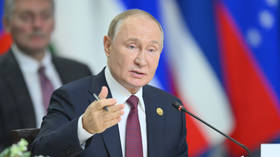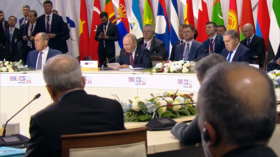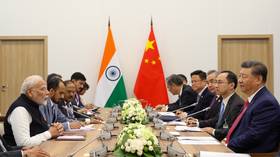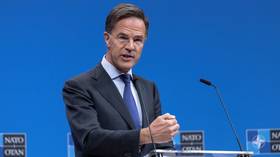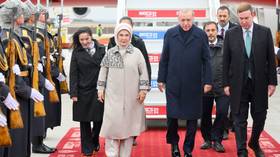India’s Continuing War on Khalistan
Stifling the Sikh Diaspora
It was never a good look. Advertised as the world’s largest, complex and most colourful of democracies, India’s approach to certain dissidents, notably of a Sikh patriotic sensibility, has not quite matched its lofty standing. The strength of a liberal democratic state can be measured by the extent it tolerates dissent and permits the rabble rousers to roam.
When it comes to the Sikhs outside India, located in such far-flung places as Canada and Australia, the patience of the Indian national security state was worn thin. Concerned that the virus of Khalistan – the dream of an independent Sikh homeland – might be gathering strength in the ideological laboratories of the diaspora, surveillance, threats and assassinations have become a feature of India’s intelligence services, benignly named the Research and Analysis Wing (RAW).
The case of Canada is particularly striking, given the audacious killing of Hardeep Singh Nijjar on June 18 last year by two-masked men just as he was about to leave the Guru Nanak Gurdwara in Surrey, British Columbia. In September, Canada’s Prime Minister, Justin Trudeau, told the House of Commons that Canada’s security services were investigating links between New Delhi and the murder. Canadian officials, including the director of the CSIS, had travelled to New Delhi to put their case. Pavan Kumari Rai, the Canadian chief of RAW, had been expelled and four Indian nationals charged in connection with the killing.
When it took place, the Modi government wondered why the Canadians were getting themselves into a tizz over the demise of a man deemed by Indian authorities to be a terrorist. Trudeau was having none of the balletic sidestepping Prime Minister Narendra Modi has become so used to from foreign leaders.
Over the course of this year, matters have only worsened. Since October 14, the pot has been boiling over. Evidence had been presented by the Royal Canadian Mounted Police (RCMP) making a compelling case that agents of the Indian government had engaged in, and continued to engage in, activities described as a significant threat to public safety.
In a statement released on that day, Trudeau spoke of his country being one “rooted in the rule of law”. Protection of its citizens was a “paramount” consideration. “That is why, when our law enforcement and intelligence services began pursuing credible allegations that agents of the Government of India were directly involved in the killing of a Canadian citizen […] we responded.” Trudeau went on to explain that the evidence uncovered by the RCMP included “clandestine information gathering techniques, coercive behaviour targeting South Asian Canadians, and involvement in over a dozen threatening and violent acts, including murder.”
The response from New Delhi was one of unbridled indignation. In a statement, Foreign Ministry spokesperson Randhir Jaiswal claimed that Canada had “presented us no evidence whatsoever in support of the serious allegations it has chosen to level against India and Indian diplomats.”
Trudeau, in turn, had hoped that the matter could have been handled “in a responsible way” that left the bilateral relationship between the two countries unblemished. Indian officials, however, had snubbed Canadian efforts to assist in the investigation. “It was clear that the Indian government’s approach was to criticise us and the integrity of our democracy.” A series of tit for tat expulsions of top envoys from both countries has figured.
New Delhi’s global program against the Sikh separatist cause has also made its presence felt in the United States. Last November, the US Department of Justice alleged that an Indian official, identified as CC-1, oversaw a plot to assassinate a Sikh US national, Gurpatwant Singh Pannun, in New York earlier in the year. The DOJ, in an unsealed superseding indictment, alleged murder-for-hire charges against Nikhil Gupta, who had been recruited by CC-1. (Gupta was subsequently arrested by the Czech authorities and deported back to the US.)
Gupta’s curriculum vitae, featuring narcotics and weapons trafficking, was that of a standard gopher in such an operation, while his target was described as “a vocal critic of the Indian government and leads a US-based organization that advocates for the secession of Punjab”. The plot was foiled largely through the intervention of an undercover official from the US Drug Enforcement Administration (DEA), who had been contacted by Gupta for assistance in contracting a gun for hire. The going price for murder: $100,000.
On October 17, FBI Director Christopher Wray revealed that CC-1, one Vikash Yadav, had “allegedly conspired with a criminal associate and attempted to assassinate a US citizen on American soil for exercising their First Amendment rights.” The second unsealed superseding indictment notes Yadav’s prominent role: an employee of the Cabinet Secretariat of the Indian government, “which houses India’s foreign intelligence service, the Research and Analysis Wing (‘RAW’).” Charges include murder-for-hire conspiracy, murder-for-hire, and conspiracy to commit money laundering.
Pannun has certainly been vocal about the Modi government. When interviewed about his response to India’s banning of a CBC Fifth Estate documentary dealing with Nijjar’s killing, he offered a grim assessment: “India, no matter what it claims, is an authoritarian regime run by a fascist [Prime Minister Narendra] Modi’s BJP.” India had operated as “an authoritarian state under the garb of democracy since 1947” and “usurped the religious identity of Sikhs in the Constitution and committed genocidal violence against Sikhs to suppress the movement for restoration of their religious identity and growing political dissent in the 1980s and 90s.”
The broader problem here remains how states – notably those with Sikh populations – have approached Modi’s transnational efforts to snuff out the Khalistan movement. The mood in New Delhi is also one of discrimination. While India has remained stroppy with Canada, the same cannot be said about its response to the United States. Instead of dismissing allegations made by the DOJ with cold stiffness, the Ministry of External Affairs announced an inquiry indicating “that India takes such inputs seriously since they impinge our national security interests as well, and relevant departments were already examining the issue.” The United States, declared the India’s First Post, had “pursued the case through proper channels” while Canada had “indulged in mudslinging throughout.”
New Delhi also sees little reason to be concerned about the response of another ally, Australia, in terms of how the Sikh community is treated. The Australian Prime Minister Anthony Albanese has shown himself to be disgracefully timid before calls by Modi that he restrain the Khalistan movement in Australia. This, despite the quiet expulsion of Indian foreign agents in 2020 – up to four of them – for engaging in activities described by the domestic intelligence chief, Mike Burgess, as including the monitoring of India’s “diaspora community”. “I don’t propose to get into those stories,” stated the Treasurer Jim Chalmers. “We have a good relationship with India… It’s an important economic relationship.”
It’s precisely that sort of attitude that has certain parliamentarians worried. Greens Senator David Shoebridge sums up the mood. “Not only would’ve [it] been good to have an honest baseline for our relationship with India, but it would’ve also sent a message to the diaspora communities here that we’ve got your back.”
Not when matters of economy and trade are at stake. Modi may not have the saintly attributes of being able to walk on water, but he continues to prove adept in escaping condemnation for his sectarian vision of India that has, through activities of the RAW, been globalised in murderous fashion.
